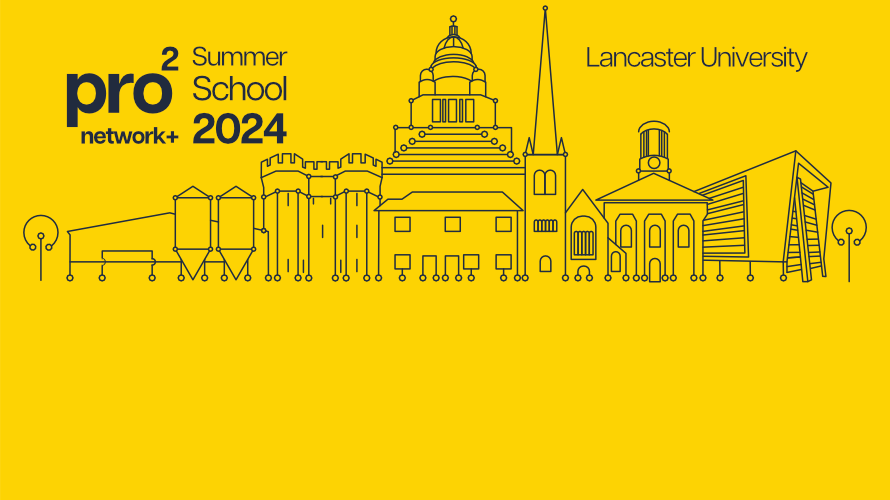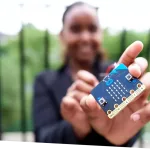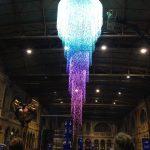Learn more about building refined and robust prototypes more quickly and easily!
We invite anyone interested in producing electronic device prototypes as part of their work to join our 3-day, hands-on summer school from the 10th to 12th of July 2024 at Lancaster University.
⚙️ Ideal for anyone with an interest in low-volume digital device creation including makers, visionaries, and researchers from any discipline.
⚙️ Open to all levels of experience and all career stages – from student to established professional.
⚙️ Learn from global experts in electronic device production and access to state-of-the-art university labs.
⚙️ Up to thirty sponsored places available – free food and accommodation!
⚙️ Up to £4,000 in prizes available to help the most promising prototype ideas move towards production.
Led by Professors Steve Hodges and Joe Finney, hosted by Lancaster University’s Devices Lab, and supported by the EPSRC-funded pro² network+. The deadline to apply for this event closed on 24th May 2024. We are no longer accepting new applications.
Instructors

Steve Hodges is an internationally recognised leader in interactive and embedded device creation. He has built and deployed prototypes at all scales, and many of these have transitioned to volume production resulting in millions of devices in market globally.

Joe Finney is a global figure in empowering non-experts to innovate with technology, in particular helping them to learn about and build lightweight embedded systems. His work has also led to millions of embedded devices that are in daily use around the world.
Examples of devices made in the hundreds, thousands and millions that Steve and Joe have worked on include the Active Bat indoor location system, the SenseCam wearable camera, several IoT development boards and modules, the Microsoft Touch Mouse, i-String Lite outdoor lighting, Microsoft Adaptive Accessories, several Jacdac modules and kits, .NET Gadgeteer modules and kits, and the BBC micro:bit.
Additional Presenters
⚙️ John Hardy, Director at Hardy & Ellis Inventions LTD. (Keynote)
An engineer with a research background in shape-changing devices, John Hardy went on to co-found Hardy & Ellis Inventions in Manchester. H&E Inventions is best known for their innovative use of emerging technologies like augmented reality, which they’ve leveraged to create products that bring the digital into the physical to increase engagement, reduce waste, and drive productivity.
⚙️ Mandy (Man) Xiang, Director of Fusion Service at Seeed Studio. (Keynote)
Seeed Studio is a Shenzhen-based hardware platform with a mission to empower everyone to achieve their digital transformation goals. Mandy directs their ‘Fusion Service’ which provides clients with tailored support, from design and customization to production and promotion.
⚙️ Mike Fraser, Professor of Human-Computer Interaction and Head of the School of Computer Science at the University of Bristol. (Keynote)
In addition to his roles as Professor and Head of School at the University of Bristol, Mike is also the Chair of the pro² network+ Steering Group. His research interests relate to how computers are made, what they are made from, and how we might support individuals with limited resources to make their own computers.
⚙️ Steve Jones, Regional Sales Manager at Eurocircuits. (Keynote)
Steve is an expert in PCB and PCBA manufacturing at Eurocircuits, who describe themselves as ‘an engineer’s best friend’. Eurocircuits specialises in fast turnaround for prototyping and small batch services, offering customers control, flexibility and quality from design to final assembly.
⚙️ Aron Eggens, PhD Student at Lancaster University. Aron’s research interests include software development.
⚙️ John Vidler, Senior Research Associate at Lancaster University. John has research interests in data science and was awarded a prize for teaching by Lancaster University.
⚙️ Kobi Hartley, Research Associate at Lancaster University. Kobi’s research interests relate to the use of tools like the Jacdac and BBC micro:bit which promote prototyping as well as STEM educaiton.
⚙️ Lorraine Underwood, PhD Student and Senior Teaching Associate at Lancaster University. Lorraine is an experienced Educator with a demonstrated history of working in the education and outreach industry. She is also a maker and author, with research interests in physical computing.
Topics
Topics covered during the workshop will be drawn from the list below. For more information, see the full agenda.
⚙️ electronic printed circuit board (PCB) design and manufacture
⚙️ component selection and sourcing
⚙️ reliable firmware
⚙️ moving from your first prototype to tens, hundreds and thousands
⚙️ enclosures for electronic devices
⚙️ design for manufacture (DfM) and for test (DfT)
⚙️ surface mount (SMT) assembly
⚙️ testing and test jigs
⚙️ regulatory compliance
⚙️ working with overseas manufacturing partners
Prizes
Up to £4,000 of prizes are up for grabs! The projects with the most potential for impact, based on the assessment criteria below, will each be awarded either £1,000 or £200 which is to be used to aid prototype development. The summer school organisers will work with awardees after the event to help them spend the money in the most effective way, to suit their prototyping goals.
The full terms and conditions of the competition can be found here
Sponsored places
Up to thirty sponsored places will be awarded based on the assessment criteria below. The most highly-ranked applications will be prioritised for sponsored places which include accommodation and meals from the evening of Tuesday 9th until 4pm on Friday 12th July. Sponsorship awardees need only pay a £50 registration fee, by credit or debit card.
All attendees must be 18 or over and will have to cover their own travel costs. Attendees from overseas will be responsible for arranging any necessary visas.
Format
The three-day workshop will be a lively and dynamic event, leveraging a variety of formats including presentations, demos, hands-on lab-based tutorials, panels and discussions.
The summer school starts at 9:30am on Wednesday 10th July and runs until 4pm on Friday 12th July. The event includes dinner and socialising on Wednesday and Thursday evenings.
Application process
Applying to take part is easy! Please complete the application form and submit a short paper to admin@prosquared.org containing a description of your prototype or idea for a prototype along with any pictures, sketches or designs of your prototype by the end of the day, midnight AOE on 24th May 2024. Instructions for writing and submitting the short paper can be found in the application form (view a PDF version of the form for reference ahead of submitting).
For your short paper, please use our Summer School paper template. You may find it useful to check out the example application we created to give a flavour of the kinds of information you might include. We will archive the short papers of successful applicants on the pro² website.
We will accept papers with multiple authors. In this instance, please provide information about each author and their contribution to the work in the bio section. Should your paper be accepted, please note that we may not have capacity to offer places at the summer school to all authors.
Assessment criteria for prizes and sponsored places
The summer school organisers will assess applications based on the content of the application form. Assessment criteria will be based on: well-explained and adventurous but realistic concepts, the impact potential of the ideas, consideration of relevant related work, prior relevant experience of the applicant, and responsible innovation.
Additional Information
Applicants will be notified of the outcome of their application by email.
Further information regarding the accessibility of Lancaster University facilities can be found on the AccessAble website. Please inform of us of any accessibility or dietary requirements in your application form. You can get in touch with us at admin@prosquared.org with any queries you may have.
Financial aid for domestic travel in the UK may be available upon request to those in need. Attendees should first make a request for funding from their own institution before requesting it from the pro² network+.
About pro² and the Devices Lab
pro² is an EPSRC-funded Network+ with the mission to ease the transition from PROtotyping to PROduction for digital devices. pro² is kindly covering accommodation and catering costs for up to thirty places!
The Devices Lab at Lancaster University’s School of Computing and Communications works with collaborators from different disciplines and different institutions to design and scale-up electronic devices that help answer all manner of research questions.





